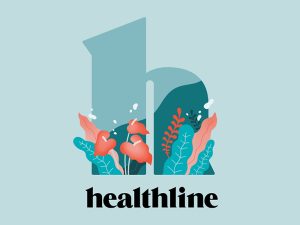Maintain good eye health by eating a healthy diet with plenty of dark, leafy greens, staying active, and wearing protective eyewear. Additionally, have regular comprehensive eye exams and be aware of your family’s eye health history to prevent vision loss.
It’s important to understand common eye diseases and the impact of vision loss on public health. Vitamin A is crucial for good vision, and foods like kale, spinach, and collard greens are rich in nutrients that lower the risk of long-term eye diseases.
Age-related eye diseases, such as macular degeneration and cataracts, are leading causes of blindness and low vision. Overall, taking care of your eyes is essential for healthy vision and overall well-being.
Understanding The Importance Of Eye Health
Understanding the Importance of Eye Health
Why prioritizing eye health is crucial: Common eye problems and their impact on overall well-being.
Eating a healthy diet is essential for maintaining good eye health. Be sure to include plenty of dark, leafy greens like spinach, kale, and collard greens, which are rich in vitamins C and E, as well as carotenoids lutein and zeaxanthin. These nutrients lower your risk of long-term eye diseases such as age-related macular degeneration (AMD) and cataracts.
Getting regular exercise is also important for eye health. Maintaining a healthy weight and keeping blood sugar levels in check can help prevent conditions like diabetic retinopathy.
Protecting your eyes from harmful UV rays is crucial. Wear sunglasses with proper UV protection whenever you’re outdoors, especially during peak sunlight hours.
Regular comprehensive eye exams are crucial for early detection and treatment of any potential eye problems. It is also important to know your family’s eye health history as some eye conditions may be hereditary.
In conclusion, by taking care of your eye health through proper nutrition, exercise, and regular eye exams, you can reduce your risk of developing common eye disorders and maintain good vision for years to come.
Nourishing Your Eyes Through Proper Nutrition
A balanced diet plays a crucial role in promoting good eye health. To ensure optimal vision, it is important to include the following nutrients in your diet:
|
By incorporating these nutrients into your diet, you can support the health of your eyes and reduce the risk of age-related eye diseases, such as age-related macular degeneration, cataract, diabetic retinopathy, and glaucoma.
Lifestyle Habits For Healthy Eyes
|
Eating a healthy, balanced diet is essential for maintaining good eye health. Be sure to include plenty of dark, leafy greens like spinach, kale, and collard greens in your diet, as they are rich in vitamins C and E, as well as carotenoids such as lutein and zeaxanthin that lower the risk of long-term eye diseases like AMD and cataracts. Additionally, regular exercise plays a significant role in promoting eye health. Engaging in physical activities helps improve blood circulation and oxygen flow to the eyes, which can reduce the risk of developing eye-related issues. To prevent eye strain, it’s crucial to follow effective strategies. Taking regular breaks from screen time, practicing the 20-20-20 rule (looking at something 20 feet away for 20 seconds every 20 minutes), and adjusting lighting and screen settings can help alleviate eye strain symptoms. It’s also essential to have regular comprehensive eye exams, maintain blood sugar levels, know your family’s eye health history, maintain a healthy weight, and wear protective eyewear when necessary. By incorporating these lifestyle habits and strategies into your daily routine, you can significantly improve your eye health and reduce the risk of developing eye diseases and vision problems. |
The Importance Of Regular Eye Exams
Regular eye exams are crucial for maintaining good eye health. By getting your eyes checked regularly, you can recognize the benefits of routine eye examinations and ensure that any potential eye issues are detected early on. But how frequently should you get your eyes checked? The answer depends on several factors, including your age and overall eye health. Generally, it is recommended to have a comprehensive eye exam every 1 to 2 years. This frequency may be adjusted based on your eye doctor’s recommendation. Eye exams not only help assess your vision and detect any refractive errors that may require prescription glasses or contact lenses, but they also allow for the early detection of eye diseases such as glaucoma, macular degeneration, and cataracts. So, don’t overlook the importance of regular eye exams and prioritize your eye health.
Protecting Your Eyes From Harmful Factors
| Eye Health | Protecting Your Eyes from Harmful Factors |
Eating a healthy, balanced diet is crucial for maintaining good eye health. Include plenty of dark, leafy greens like spinach, kale, and collard greens, as they are rich in vitamins C and E, along with carotenoids lutein and zeaxanthin. These nutrients help lower the risk of long-term eye diseases such as age-related macular degeneration (AMD) and cataracts. Regular physical activity is important as well. Additionally, it is necessary to have a comprehensive eye exam and know your family’s eye health history. Maintaining a healthy weight, managing blood sugar levels, and wearing protective eyewear can also contribute to maintaining healthy eyes. Be cautious of the harmful effects of UV rays and digital screens on eye health by wearing sunglasses and taking breaks from screen time. By following these tips, you can ensure the well-being of your eyes for a lifetime.
Eye Care For Different Age Groups
|
Eating a healthy, balanced diet is crucial for maintaining good eye health. Incorporate plenty of dark, leafy green vegetables like spinach, kale, and collard greens into your meals, as they are rich in vitamins C and E, as well as carotenoids lutein and zeaxanthin, which lower the risk of long-term eye diseases such as age-related macular degeneration (AMD) and cataracts. Regular comprehensive eye exams are important to detect any potential issues early on and ensure optimal eye health. Additionally, maintaining blood sugar levels, knowing your family’s eye health history, staying at a healthy weight, and wearing protective eyewear are all essential practices for preventing vision loss. For children and teenagers, it is crucial to prioritize eye health. Encouraging them to eat a nutritious diet, engaging in physical activities, and emphasizing the importance of protecting their eyes while playing sports or engaging in outdoor activities are all essential for their eye health. Adults and seniors should also pay attention to their eye health. Regular eye exams, managing chronic conditions like diabetes, maintaining a healthy weight, and wearing sunglasses to protect the eyes from harmful UV rays are important practices to ensure good eye health as they age. |
Tips For Maintaining Optimal Eye Health
Eye health is important for maintaining optimal vision and preventing eye infections. There are several effective tips for maintaining good eye health:
- Eat a healthy diet that includes plenty of dark, leafy greens like spinach, kale, and collard greens. These foods are rich in vitamins C and E, as well as carotenoids lutein and zeaxanthin, which lower the risk of eye diseases like age-related macular degeneration and cataracts.
- Stay active and maintain a healthy weight. Regular exercise improves blood circulation and can help reduce the risk of eye conditions like glaucoma.
- Avoid smoking and protect your eyes from harmful UV rays by wearing sunglasses that block out both UVA and UVB rays.
- Ensure you have regular comprehensive eye exams to detect any potential issues early on and maintain healthy blood sugar levels if you have diabetes.
- Know your family’s eye health history and take appropriate measures to prevent any inherited eye conditions.
- Finally, incorporate eye exercises into your daily routine to strengthen eye muscles and improve focus.
By following these tips, you can maintain optimal eye health and prevent common eye infections. Remember to take care of your eyes as part of your overall health and wellness routine.
When To Seek Professional Eye Care
| Eye Health | |
| When to Seek Professional Eye Care | |
| Identifying signs that warrant immediate medical attention | |
| Understanding the importance of seeking professional guidance is crucial for maintaining good eye health. Some signs that indicate the need for immediate medical attention include sudden changes in vision, such as blurred or double vision, severe eye pain or discomfort, persistent redness or irritation, sudden onset of floaters or flashes of light, and any trauma or injury to the eye. It’s important not to ignore these symptoms as they may be indications of serious eye conditions that require prompt treatment. If you experience any of these signs, it is recommended to consult an eye care professional as soon as possible to prevent further complications and ensure appropriate care and treatment for your eyes. | |

Credit: belmonteyecenter.com
Frequently Asked Questions For Eye Health
How Can I Improve My Eye Health?
To improve your eye health, follow these tips: – Eat a healthy diet rich in dark, leafy greens like spinach and kale. – Stay active and maintain a healthy weight. – Have regular comprehensive eye exams. – Know your family’s eye health history.
– Wear protective eyewear, such as sunglasses.
What Foods Improve Eyesight Naturally?
Dark, leafy greens like kale and spinach contain vitamins C and E, as well as carotenoids lutein and zeaxanthin, which improve eyesight and lower the risk of eye diseases such as AMD and cataracts. Vitamin A is also essential for good vision and can be found in fruits.
What Are The 4 Most Common Eye Problems?
The four most common eye problems are age-related macular degeneration, cataract, diabetic retinopathy, and glaucoma. These age-related diseases can lead to vision loss and should be addressed with proper eye care and regular check-ups. Eating a healthy diet rich in vitamins and antioxidants can support eye health and reduce the risk of these conditions.
Conclusion
Taking care of your eye health is essential for maintaining good vision and preventing common eye diseases. Eating a balanced diet rich in fruits and vegetables, particularly dark leafy greens, can provide the necessary vitamins and nutrients for healthy eyes.
Additionally, protecting your eyes from harmful UV rays by wearing sunglasses and practicing good eye hygiene can contribute to long-term eye health. Regular comprehensive eye exams and knowing your family’s eye health history are crucial for early detection and treatment of potential eye problems.
Remember, your eyes are precious, so prioritize their care and enjoy a lifetime of healthy vision.










Be First to Comment